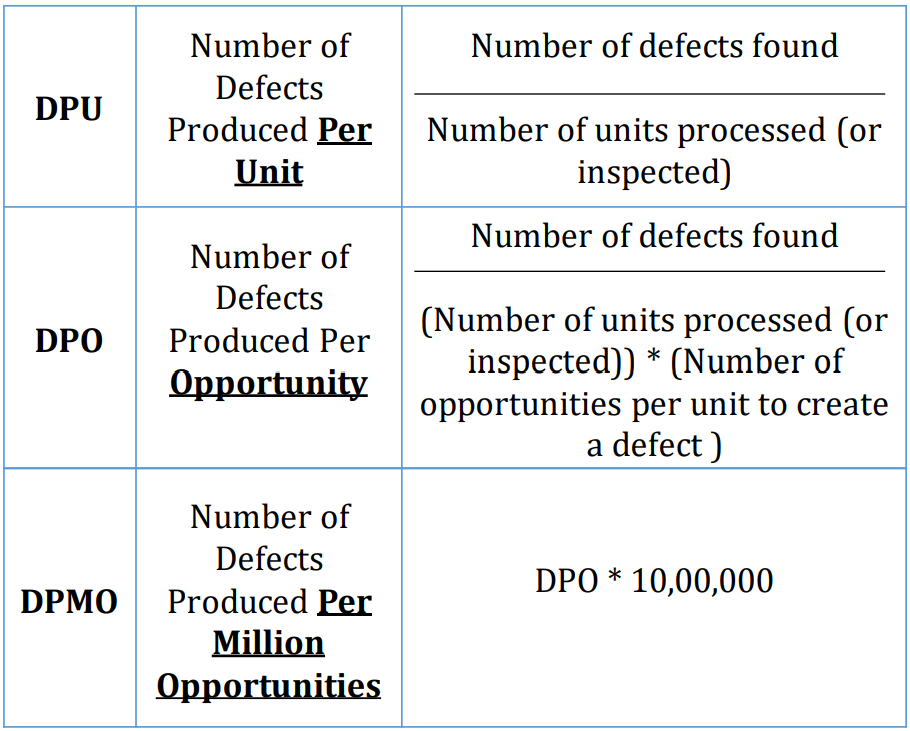
Baselining Discrete Data
-
A technique to establish the current performance
level of a process metric(s) Used for:
- Understanding current and historical levels of the process
(at the start of the project)
- Identifying whether we are meeting customer
requirements
- Quantifying the extent of the problem (problem statement
at the start of the project)
- Assessing the extent of improvement (Goal statement at
the start of the project)
- Quantifying the improvement benefits (towards the end
of the project)
- Clearing perceptions of the stakeholders (start of the
project)
-
In order to baseline, we must identify and
understand the type of data
-
Let’s say there are 100 trades, and each trade draft has
10 key attributes that need to be correctly entered e.g.,
National value, currency, counterparty name, initial
margin %, fixed or floating, value date, etc.
-
A Unit is an item being processed
- E.g., a Trade, a trade draft, application, request for
service
-
An Opportunity is any event/characteristic/attribute
that is essential and measured from a customer's
perspective. It provides a chance of not meeting a
customer requirement
- E.g., each of the 10 attributes on the trade draft form
-
A Defect is an event of non-conformity to Customer
requirements
- E.g., Any of the 10 key attributes incorrectly drafted.
-
A Defective is a Unit with one or more defects
- E.g. Trade draft with one or more of the 10 key attributes
incorrectly drafted. 20% defectives if 20 out of 100
Trades had at least one defect (at least 1 key attribute
incorrectly drafted)
-
Once DPMO is
calculated,
look up the
value in the
Sigma table to
determine the
Sigma value
-
Sigma – The
measure of process
capability. At 6
sigma, there are
only 3.4 defects per
1 Million
opportunities (i.e.,
99.99967%
conformance to
customer
requirements
-
The advantage of
DPMO or Sigma
measure is:
Levels the playing
field by providing
comparability
across dissimilar
processes,
Compounds the
effect.

